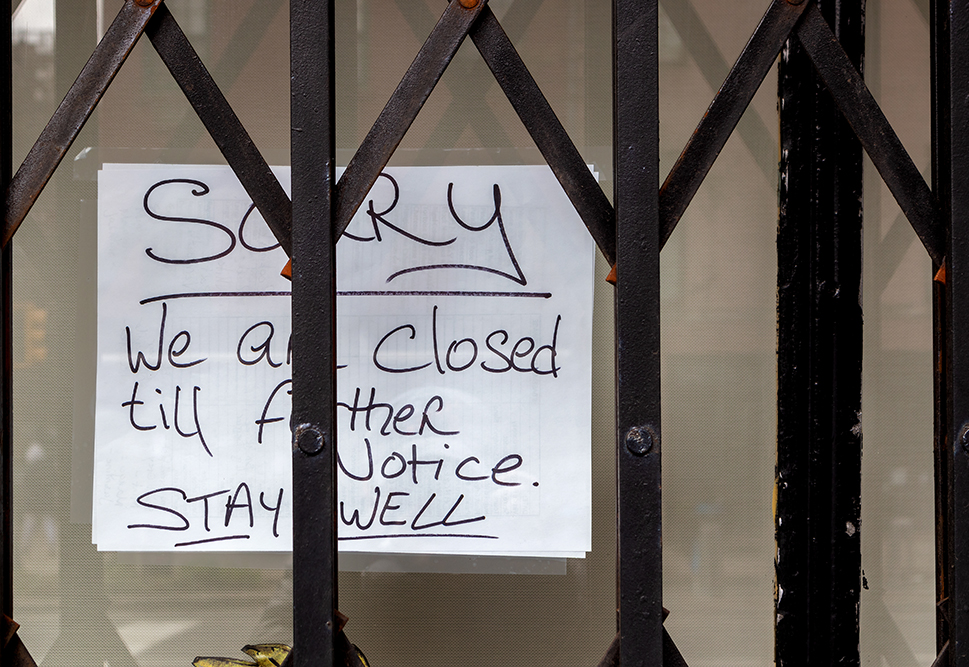As New York City Unemployment Rate Soars to 20.4 Percent, Comptroller Stringer Calls on Congress to Extend the Federal Pandemic Unemployment Compensation Program

The $600 weekly benefit provides crucial financial assistance to nearly a million unemployed New Yorkers
Continuing unemployment benefits inject $25 billion into the economy each week, and are critical to economic recovery
Stringer: “Nothing is more important right now to avoiding personal financial catastrophe for millions of Americans than ensuring they can pay the rent, buy groceries, pay their health insurance premiums, and meet other essential needs.”
(New York, NY) — Today, New York City Comptroller Scott M. Stringer sent a letter to U.S Senate Majority Leader Mitch McConnell and U.S House of Representatives Speaker Nancy Pelosi urging Congress to extend the Federal Pandemic Unemployment Compensation Program (FPUC) through at least the end of this calendar year in the next federal COVID-19 relief bill. The FPUC, which provides $600 per week in supplemental unemployment benefits, is set to expire at the end of this week.
Comptroller Stringer’s letter highlights that 30 million Americans, or one out of every five workers, are receiving unemployment benefits, injecting more than $25 billion per week into the economy – equal to 6.4 percent of personal consumption expenditures as of May – which is crucial to preventing a deep and prolonged economic crisis.
Comptroller Stringer also underscores that in New York City – where the unemployment rate reached 20.4 percent in June and thousands of families pay more than half their income in rent – these benefits are a critical lifeline to pay rent, buy groceries, pay health insurance premiums, and meet other essential needs.
The full letter is available below and can be found here.
Dear Leader McConnell and Speaker Pelosi:
I am writing today to urge you to include extension of the Federal Pandemic Unemployment Compensation Program (FPUC) in the next federal COVID-19 relief bill. This benefit, which provides urgently needed assistance to tens of millions of unemployed Americans, is set to expire at the end of this week. The path of economic recovery from the COVID-19 recession, and the well-being of millions of American families, depends on the continuation of this innovative and important benefit.
Nothing is more important right now to ensuring economic recovery than maintaining the spending power of consumers.
Over 30 million Americans are receiving unemployment benefits – either through traditional State UI programs, or through the Pandemic Unemployment Assistance program enacted to cover those not eligible for traditional unemployment. That’s one out of every five workers.
Together these programs are putting more than $25 billion a week into the pockets of workers who, through no fault of their own, are without work because their businesses have been shut down in order to protect public health.
That’s 6.4 percent of personal consumption expenditures as of May, which are in turn 70 percent of GDP. In short – this money, in the absence of jobs and wages, is crucial to preventing the economy from sliding into a deep and prolonged downward spiral. Without it, demand would fall, dragging down GDP by 2 percentage points, according to recent estimates.
And nothing is more important right now to avoiding personal financial catastrophe for millions of Americans than ensuring they can pay the rent, buy groceries, pay their health insurance premiums, and meet other essential needs.
In New York City, the unemployment rate reached 20.4 percent in June – one worker out of every five is unemployed. And by my office’s estimate, the average pre-pandemic weekly wage of those workers was just $700. In a city where 435,000 families who earn less than $50,000 for a family of three pay more than half their income for rent, taking away that extra money will mean the difference between paying the rent and not.
Some Members of Congress have expressed the view that continuing the $600 weekly FPUC would be a disincentive to returning to work. Setting aside what this says about the abysmal pay so many workers are forced to try and live on – what work? As you know, the shutdowns across the country led to the loss of over 22 million jobs – only one-third of which have returned since the depth of the crisis in April. For there to be a disincentive to work, there has to be a choice between working and not working. There is no such choice right now for those Americans still out of work – and for many of them, it will be a long time before their jobs return.
Employees want to go back to work. They want normalcy. They want their children to be able to go to school in the Fall. None of the current economic chaos was of their making – they should not have to pay for it with personal financial hardship, including the loss of health insurance, their meager savings, and even their homes.
For all these reasons, I urge you in the strongest terms to extend this critical lifeline through at least the end of this calendar year, or until such time as employment has been restored to its pre-pandemic level. Our economic recovery – and the lives of millions of our fellow Americans – depends on it.
Sincerely,
Scott M. Stringer
Comptroller, City of New York
###